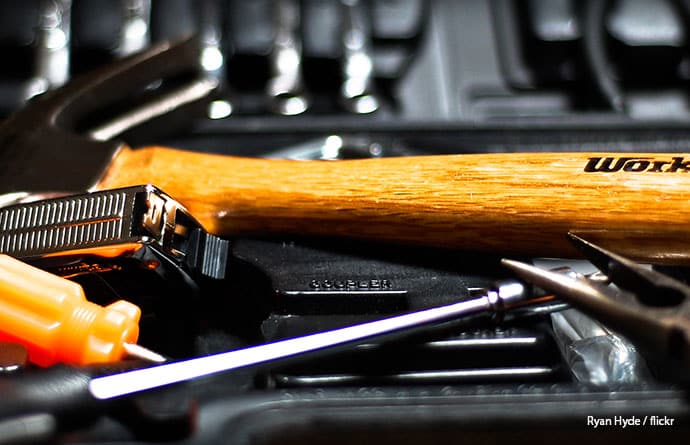
If you have hired a good removal company to move you then they will bring all the tools and equipment that they need to disassemble and reassemble the furniture you are moving, but there is still the need for you to be prepared with your own moving day tool kit.
Imagine that you arrive at your new home on moving day to find that all the light bulbs have been removed or that the radiators are blocked and need bleeding.
It is late in the day, it is starting to get cold and dark, you are tired, hungry, stressed and now you have to search through a dozen different boxes to find the right tools or to find some new light bulbs.
Therefore it makes sense to pack a bag of tools and spares that you might need quick and easy access to on moving day.
Call me paranoid if you want, but I have experienced arriving in a new home where there were no light bulbs, and when I moved into my last home, even where all the light fittings had been removed.
Therefore, I always pack a bag of tools and spares, and on more than one occasion it has saved the day.
Packing a basic moving day tool kit with a few key items to make temporary, but essential, repairs on moving day requires a little forethought and planning but is certainly worth considering having handy.
Read on to discover our suggestions for tools and equipment that it pays to have handy on moving day.
What Tools Do You Need When Moving Home?
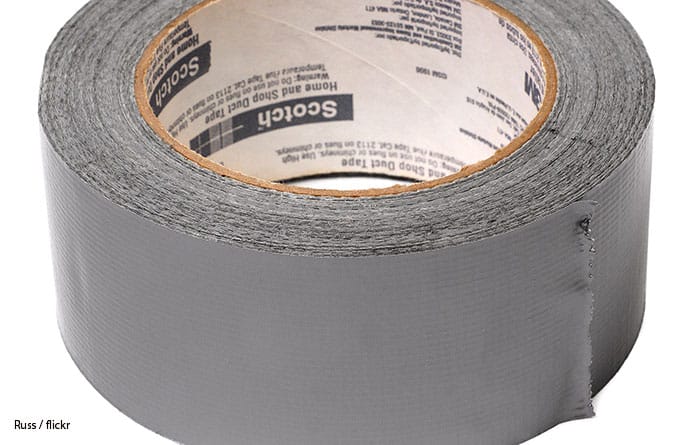
These tools will help you do most of the essential or emergency repairs that you may need to do on moving day.
#1 Box cutter
Makes opening boxes and cutting tape so much easier. Keep a few spare blades or make sure it has a new blade fitted.
#2 Packing tape
You can guarantee that a box or two will need taping back up on moving day.
#3 Gaffer tape
Essential item for repairing and patching anything from ripped clothes to a broken handle.
#4 Zip Ties
From temporary repairs to fences to securing a gate to pet-proof your garden, zip ties have a million and one uses so keep a selection of sizes in your moving day tool kit.
#5 Selection of screws and nails
It is worth having a small selection of various-sized screws and nails in a Ziploc bag just in case.
#6 WD40
From a rusted shut padlock to a screw that you cannot undo, WD40 is handy for loosening or lubricating.
#7 Screwdrivers
For reassembling furniture you may need a selection of flathead and Phillips screwdrivers.
#8 Cordless screwdriver with various heads
Not really essential but makes reassembling furniture faster and easier. Be sure to fully charge the screwdriver before moving day.
#9 Pliers
Multiple uses.
#10 Adjustable Spanner
An adjustable spanner means that you don’t need a whole range of sizes, just one tool will get the most urgent jobs done.
#11 Hammer
#12 Allen Keys
Most furniture is reassembled with Allen bolts so have a full set of Allen keys in your toolbox.
#14 Radiator Key
Bleeding a radiator takes a couple of minutes and if you are moving in the colder months is essential to have it with you on moving day.
#15 Light bulbs
It is worth having a selection of light bulbs so that you have light in the essential rooms should the bulbs be blown or have been removed.
It is worth bearing in mind that often bulbs in lamps get damaged during the move so having spares for those is a good idea.
#16 Fuses
A selection of plug fuses and main fuses is handy just in case.
#17 Padlocks
Useful for securing gates and outbuildings. It is always worth changing padlocks as soon as you move in as you never know who has keys to the old locks.
#18 Torch
A couple of torches are useful in case there is a power cut or you need to go outside in the dark.
#19 Headlamp
A head torch is really useful if you need your hands free to work on something.
#20 Batteries
Have a selection of different battery sizes, you should change the batteries in the smoke alarms and security PIRs as soon as possible after moving in.
#21 Extension Leads
Useful for plugging in night lamps in kids’ bedrooms if the sockets are in the wrong place or you find that a socket does not work in a room.
#22 Multi-tool
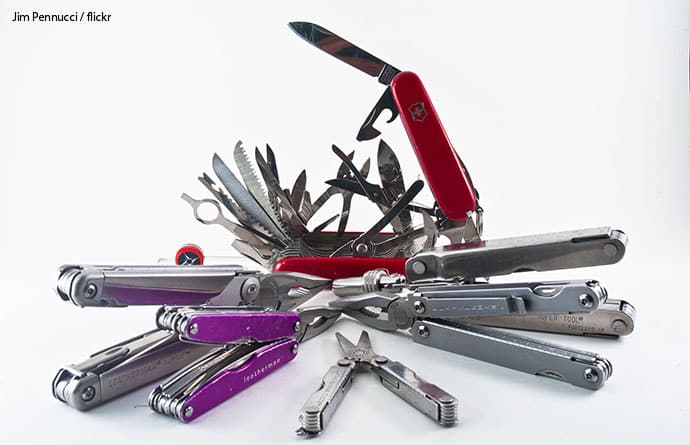
A multi-tool like a Leatherman is really handy to keep on your belt on moving day. The type with the pliers is particularly useful for small jobs.
#22 Home Moving Binder
Hopefully, you will have asked the previous householders to complete a home moving binder for you or you will have compiled a folder with all the essential information about your new home that you may need.
Some of the essential things you would want to know are:
- Where the fuse box is
- Where the water mains stop cock is located
- Where the gas valve shutoff is
- How to operate the heating system
- What the security alarm code is and how to change it
- How to operate the boiler
- Keys and what they belong to
You may also like to read: How to Create a Home Moving Binder. You can save yourself any potential problems on moving day by creating a home moving binder. This will contain all the essential information you need about your new home, guarantees, and operating instructions for appliances and heating.
#23 Door wedges
If you arrive late in your new home you may not have time to change the main door locks so take a few door wedges with you.
They are light, quick, and easy to use and will give you peace of mind on your first night in your new home.
These are also useful for keeping doors open as you unload your boxes into your new home.
A broom handle or length of wood laid along the bottom of a sliding patio door will be enough to secure it temporarily.
#24 First Aid Kit
Keep a first aid kit on hand, it is easy to injure yourself when you are tired and stressed.
You may also like to read: Must Know Simple First Aid. It is easy to get injured when you are tired, stressed, and rushing around on moving day. It is therefore essential to know a few of the basics of first aid and in this guide, we look at how to treat the most common injuries that occur within the home.
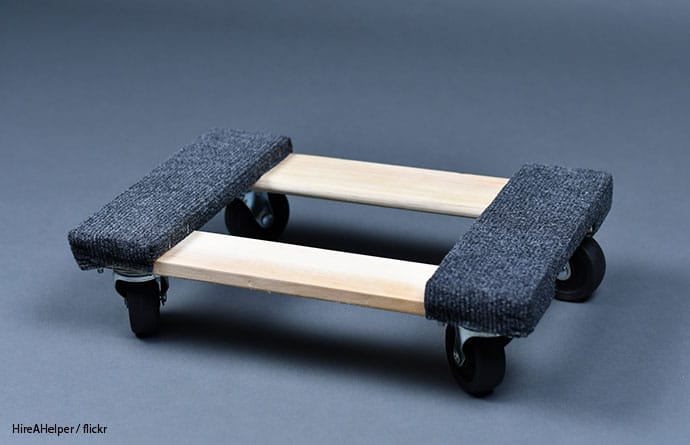
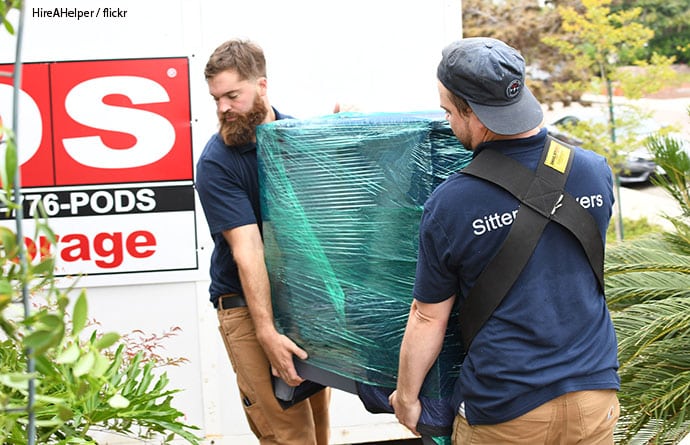
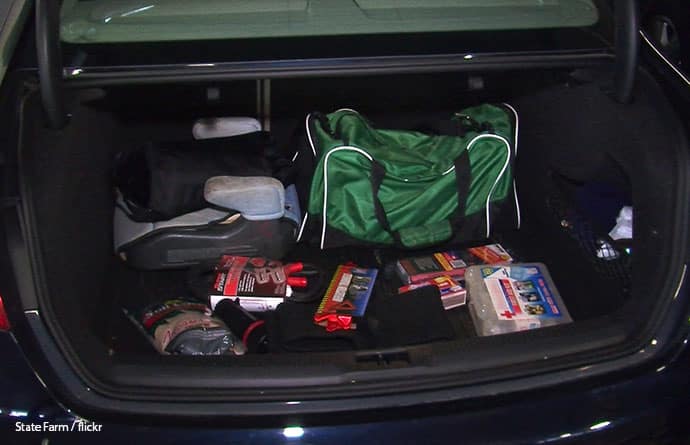
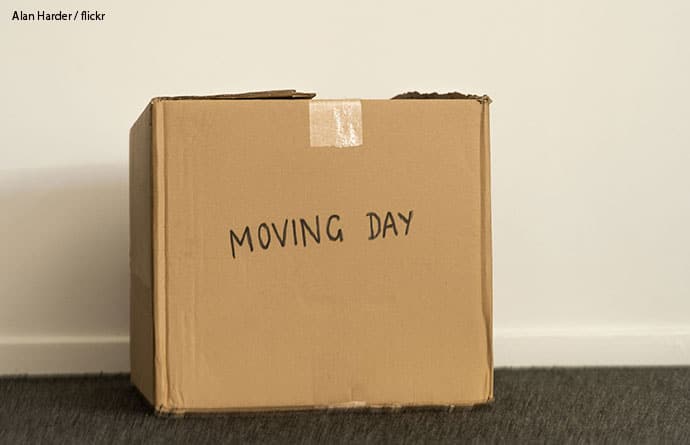



Share your thoughts by leaving a comment